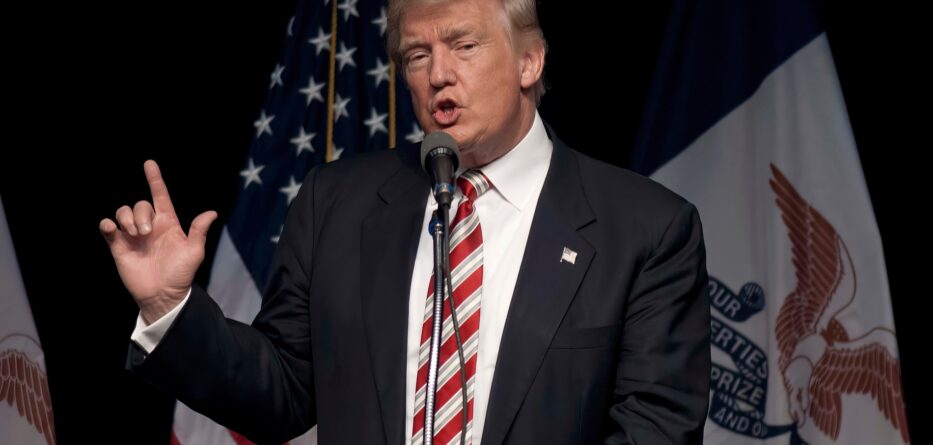
A Blow to National Security or a Win for Civil Liberties?
In a polarizing 2-1 decision on September 3, 2025, the 5th U.S. Circuit Court of Appeals struck down President Donald Trump’s audacious attempt to wield the Alien Enemies Act of 1798 to deport alleged Venezuelan gang members, specifically those tied to the notorious Tren de Aragua gang, from Texas, Louisiana, and Mississippi. This ruling has ignited a firestorm of debate, pitting national security hawks against civil liberties advocates in a clash over immigration policy and executive power.
The Trump administration argued that the 18th-century law, originally designed for wartime expulsions during a declared conflict or invasion, was a necessary tool to combat what they call a “migrant crime wave.” Citing rising fears of gang violence, particularly from Tren de Aragua, Trump’s team justified the deportations as a critical measure to protect American communities.
Supporters of the policy, including hardline conservatives, cheered the move as a bold stand against illegal immigration and foreign criminal networks. “The Biden era let these gangs run wild,” said one Trump advisor. “We’re cleaning up the mess, and the courts are tying our hands.”
On the other side, the American Civil Liberties Union (ACLU), representing the detained Venezuelans, decried the policy as a dangerous overreach. The ACLU argued that the Alien Enemies Act was never meant for peacetime immigration enforcement and accused Trump of weaponizing an archaic law to bypass due process.
The court agreed, ruling the administration’s actions unlawful and affirming that immigration policy cannot be militarized without clear legal grounding. Progressive groups celebrated the decision as a triumph for immigrant rights, with one ACLU attorney stating, “This is a victory for the rule of law and a rebuke to Trump’s authoritarian tactics.”
Critics of the ruling, however, see it as a judicial roadblock to securing the border. They point to reports of Tren de Aragua’s alleged involvement in violent crimes across the U.S., arguing that the court’s decision emboldens dangerous elements. “The 5th Circuit just gave a free pass to gang members,” fumed one conservative commentator. “This isn’t about civil liberties—it’s about letting chaos fester.” Meanwhile, immigration advocates warn that such rhetoric fuels xenophobia, unfairly painting all migrants as threats.
The case is now on a collision course with the Supreme Court, where a deeply divided bench could shape the future of immigration enforcement.
Will Trump’s aggressive stance prevail, or will the judiciary continue to check his administration’s hardline policies? As the nation awaits a final verdict, the debate rages on: is this a necessary crackdown on crime or a chilling assault on civil rights?
-
Coming Together for Los Angeles Los Angeles, a city known for its vibrant energy and creativity, has faced heartbreaking...
-
Unanswered Questions and Partygoers in the Spotlight as Pacific Palisades Fire Intrigue Grows Los Angeles is grappling with the...
-
The devastating wildfires tearing through California have left an indelible mark on the state, and even Hollywood’s glittering elite...
-
Chaos erupts in Las Vegas as Cybertruck explosion sparks tragedy Las Vegas woke up to tragedy on Wednesday morning...
-
A deadly spree on Bourbon Street leaves a city in mourning A night of celebration in New Orleans’ famous...
-
Discover the ambitious goals and forecasts Trump has set for the year 2025 With the countdown to his return...
-
A Critical Breach with Serious Implications for National Security The U.S. Treasury recently confirmed a significant cyberattack attributed to...
-
How leadership changes and shifting power dynamics are reshaping the global stage The Bilderberg Group, one of the world’s...
-
Elon Musk’s holiday surprise leaves fans questioning the truth. Elon Musk, the billionaire entrepreneur and Tesla CEO, surprised his...
-
So…Is TikTok Getting Banned or Not? President-elect Donald Trump suggested over the weekend that TikTok might stick around a...
-
Credit: Envato Elements The Rich History of The States The United States is full of incredible landmarks that bring...
-
Wit meets politics as AOC fires back at Trump with a clever comeback. Rep. Alexandria Ocasio-Cortez (AOC) is showing...




















